Music as Medicine Symposium
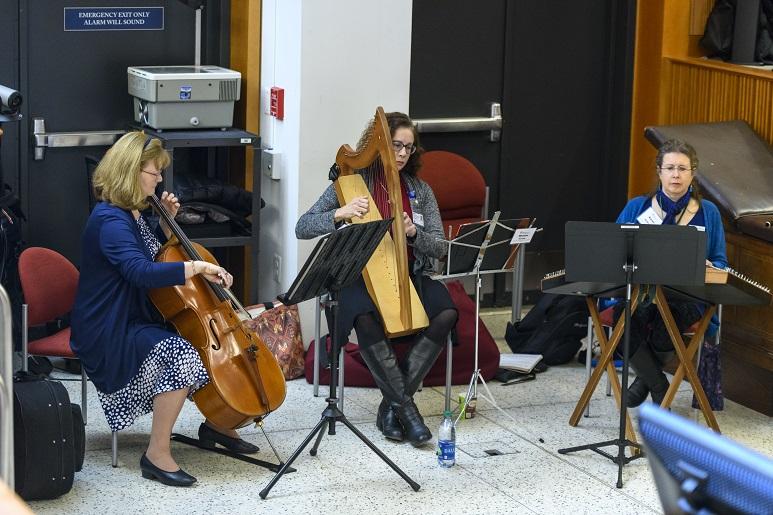
The Music as Medicine Symposium: Enhancing Well-Being and Buffering Exhaustion
Presented by the Georgetown Lombardi Arts and Humanities Program (AHP) and the MedStar Institute for Innovation (MI2) on Thursday, March 22, 2018 was a wonderful success.
The symposium featured world-renowned scholars at the forefront of research on music, arts and stress in healthcare.
Töres Theorell, M.D., Ph.D., Professor Emeritus, Department of Neuroscience, Karolinska Institutet, Stockholm, Sweden; Stress Research Institute, Stockholm University, Stockholm Sweden, presented a wonderful presentation full of rich research entitled, “Music as Medicine in Society – Loudspeaker, Healer or Poison.”
Eva Bojner Horwitz, Ph.D., Ph.T., DMT, Department of Public Health and Caring Sciences, Uppsala University, Uppsala, Sweden; Center for Social Sustainability, Department of Neurobiology, Care Sciences and Society/ Department of Clinical Neuroscience, Karolinska Institutet, Stockholm, Sweden, presented an extremely thought-provoking presentation entitled, “Humanizing healthcare through cultural activities.”
A Loud Strong Song
I felt myself
teetering on
the edge of
a precipice-
below, anger inviting
below.
It took an act of will
to sing
a loud strong song
and simply sway
to pull me back to
solid ground.
The Backstory to A Loud Strong Song
“I wrote this about a personal experience. Everything was going wrong and I could feel myself slipping into anger and ready to lash out at others. I didn’t want to go there. Having heard of the benefits of song and movement, I decided to give them a try. I sang Beatle songs as loud as the situation allowed and I swayed discreetly. A friend saw me and gave me a strange look. I was fine with that. I’d rather appear a fool than act rashly and be a fool. I sang, I swayed. I couldn’t help but smile. To my own surprise, I could feel the music and the movement change my mood. I was able to handle the situation without alienating anyone.
What a low tech, inexpensive, easily accessible prescription without side effects for frustrated clinicians. If only, it was socially acceptable.”
– Michelle Berberet, Georgetown Lombardi Arts and Humanities Program Artist-in-Residence
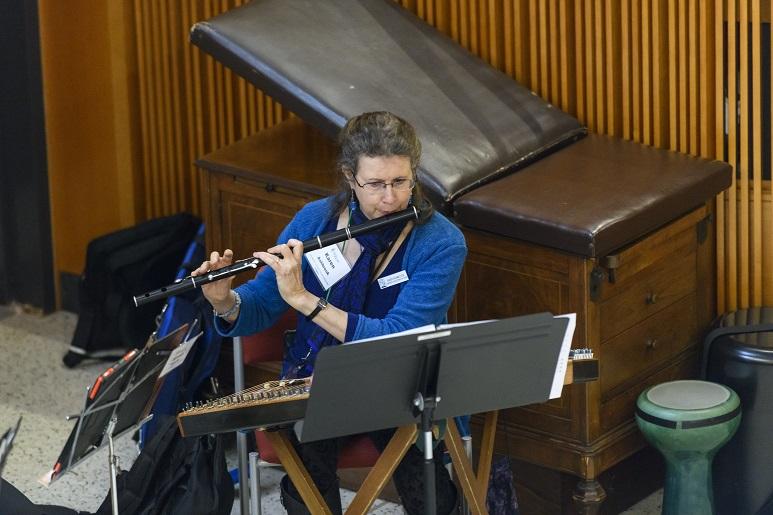
Georgetown Lombardi Arts and Humanities Program musician-in-residence, Karen Ashbrook, plays music for the opening of the Music as Medicine Symposium 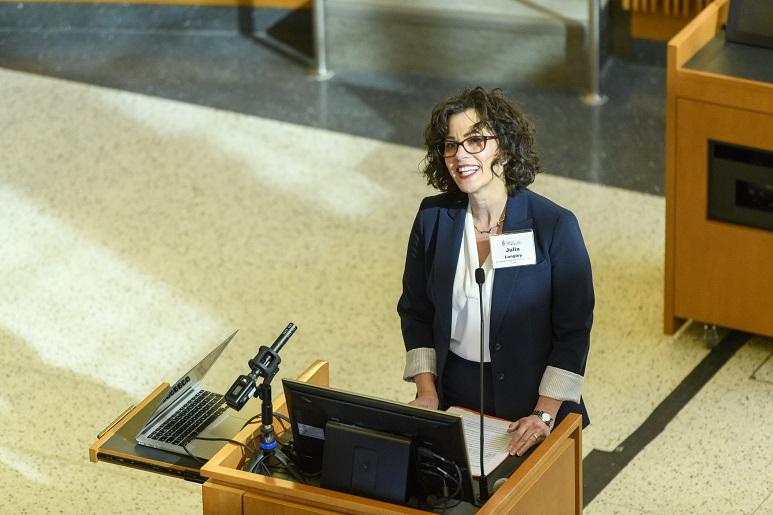
Julia Langley, Faculty Director, Georgetown Lombardi Arts and Humanities Program, shares opening remarks for the Music as Medicine Symposium 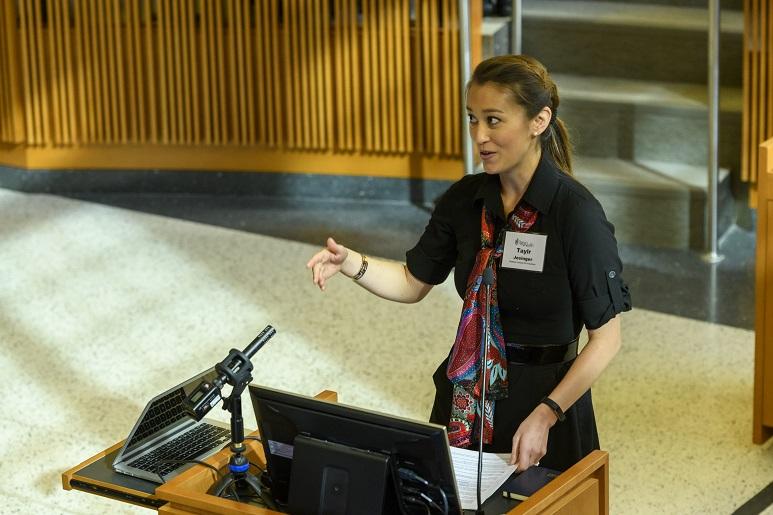
Taylr Jesinger, Director of innovation Forums, Senior Project Manager, MedStar Institute for Innovation (MI2) shares opening remarks for the Music as Medicine Symposium 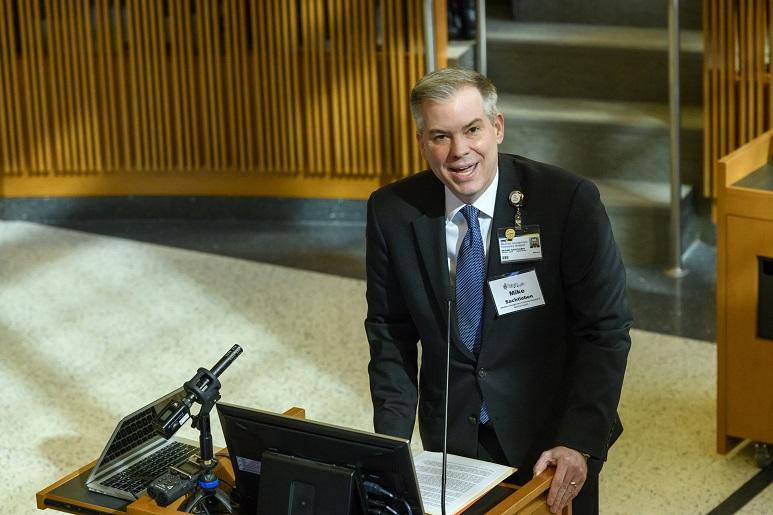
Michael Sachtleben, President, MedStar Georgetown University Hospital & MedStar Health shares some opening words for the Music as Medicine Symposium, March 2018 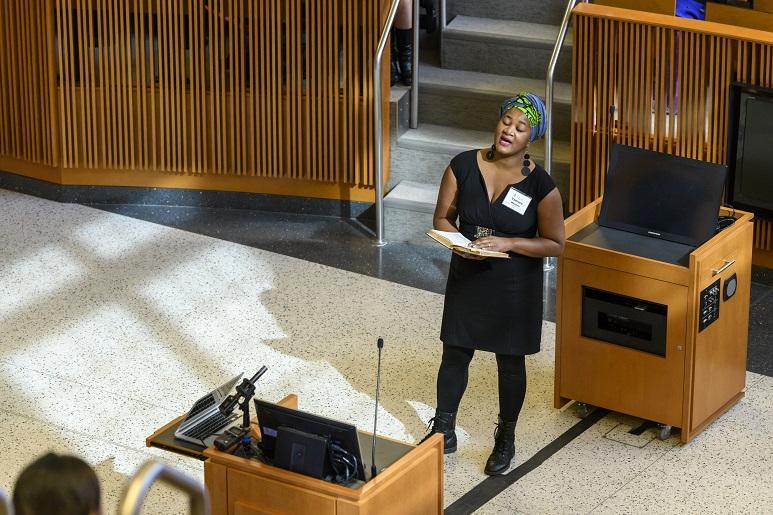
Georgetown Lombardi Arts and Humanities Program vocalist-in-residence, Tamara Wellons sings two opening songs 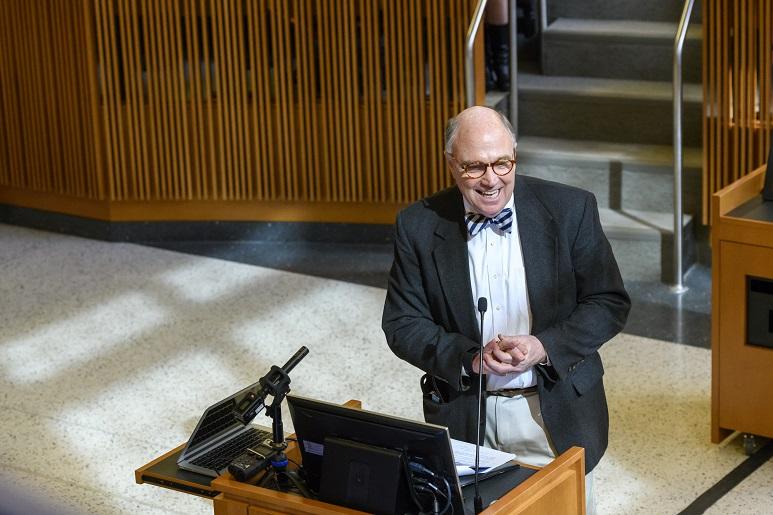
Dr. Stephen Ray Mitchell, Dean, Georgetown University School of Medicine providing opening remarks within the W. Proctor Harvey Amphitheater 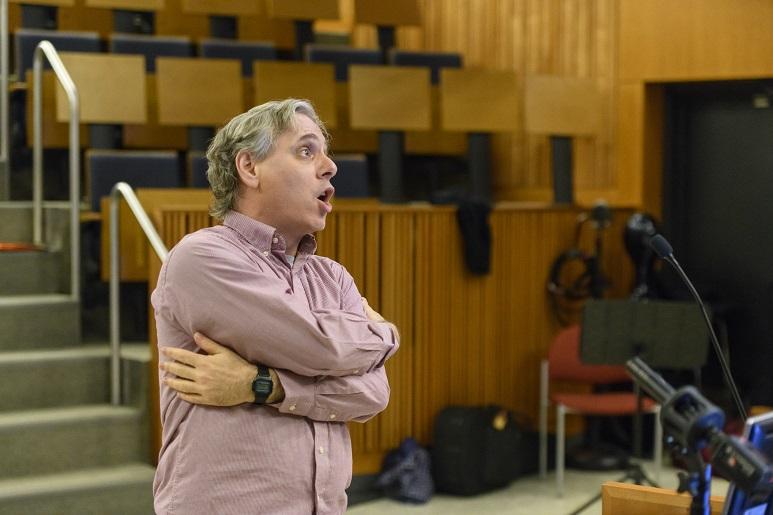
Anthony J Hyatt leading a “Breathing in, breathing out” stretch break 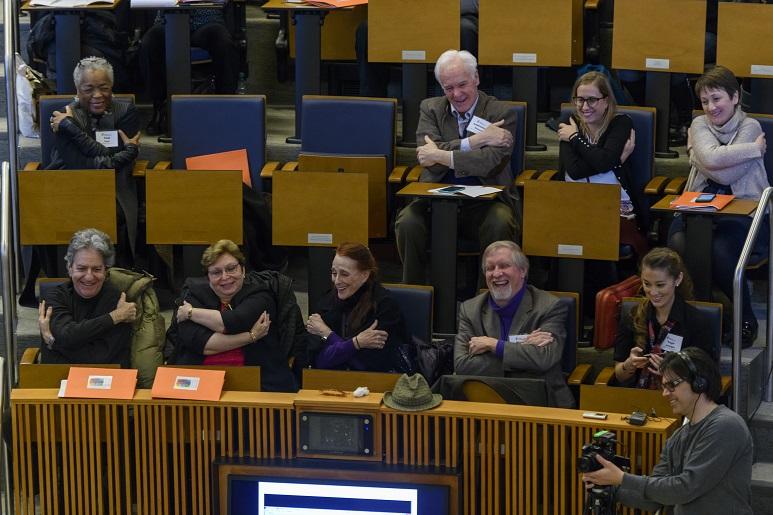
The symposium attendees participating in Anthony J Hyatt “Breathing in, breathing out” stretch break 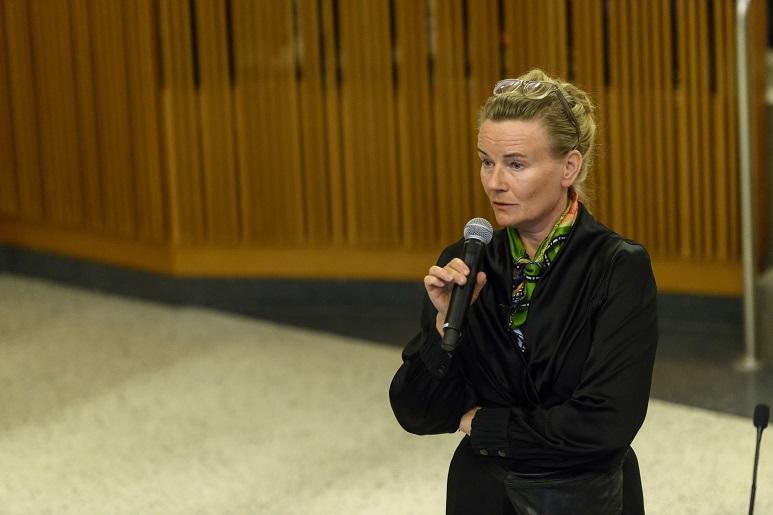
Dr. Eva Bojner Horwitz, PH.D., PH.T., DMT Presentation entitled, “Humanizing Healthcare Through Cultural Activities. 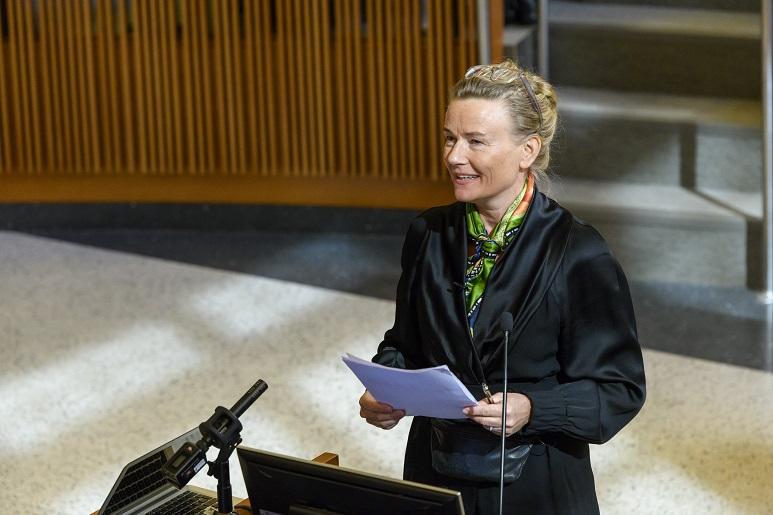
Dr. Eva Bojner Horwitz, PH.D., PH.T., DMT Presentation entitled, “Humanizing Healthcare Through Cultural Activities.” Music as Medicine Symposium, March 2018 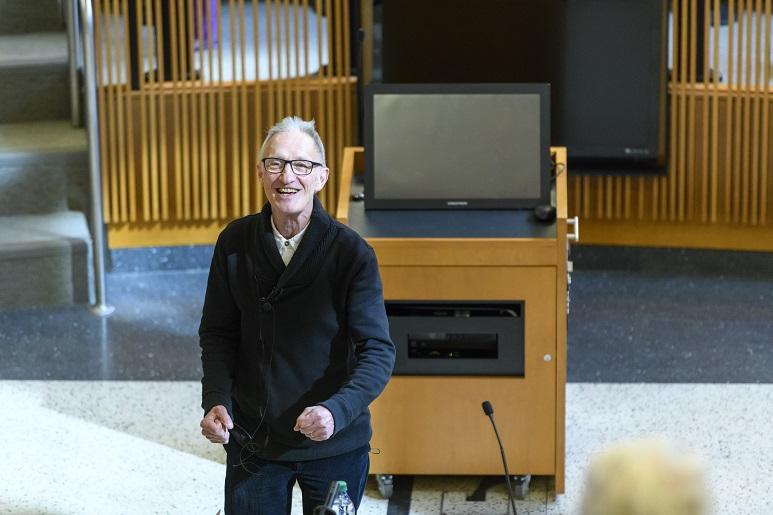
Dr. Töres Theorell, M.D., PH.D. Presentation entitled, “Music as Medicine in Society – Loudspeaker, Healer or Poison.” Music as Medicine Symposium, March 2018 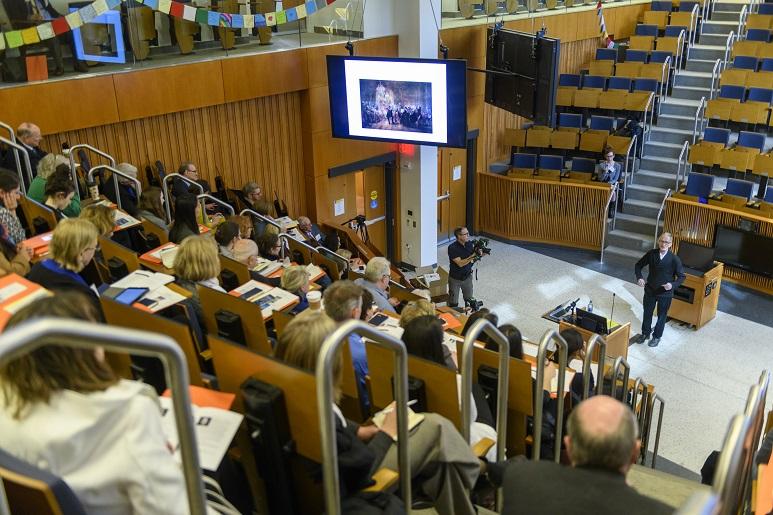
Music as Medicine Symposium, March 2018 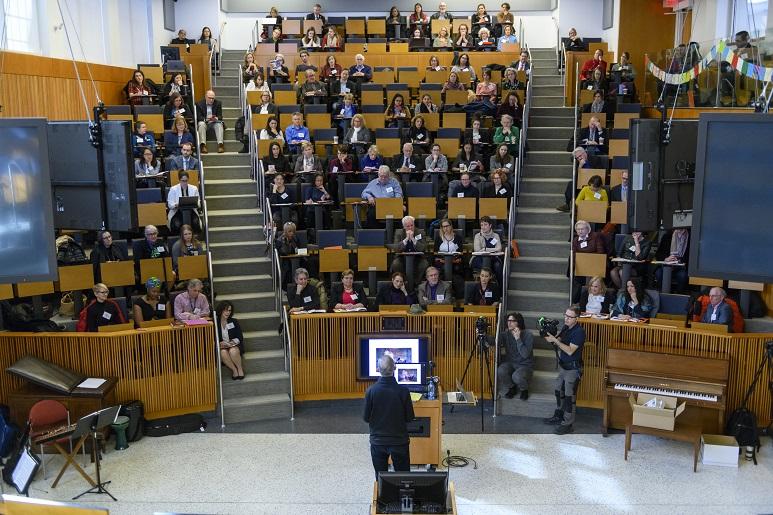
Music as Medicine Symposium, March 2018 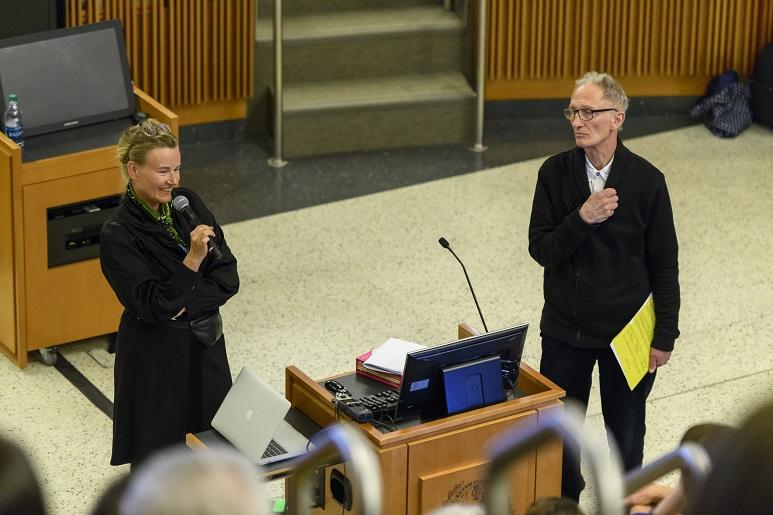
Dr. Eva Bojner Horwitz and Dr. Töres Theorell answer questions from the audience 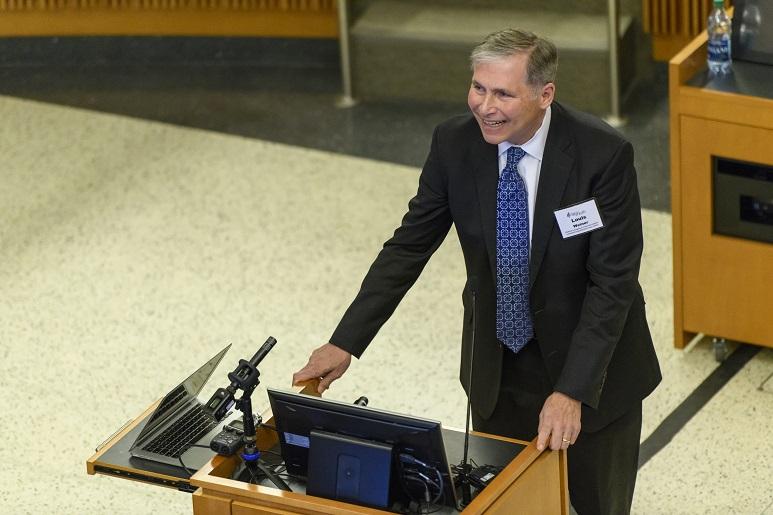
Dr. Louis M. Weiner, Director, MedStar Georgetown Cancer Institute & Lombardi Comprehensive Cancer Center Chair, Department of Oncology provides closing remarks for the Music as Medicine Symposium 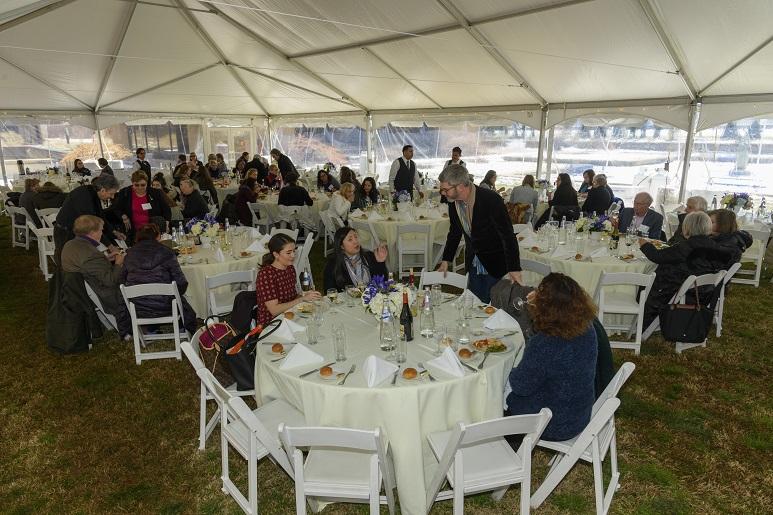
After the Music as Medicine Symposium, everyone was welcome to join us for a lovely lunch catered by Petits Plats in a cozy tent outside
Please don’t hesitate to contact Faculty Director, Julia Langley at julia.langley@georgetown.edu or Program Coordinator, Morgan Kulesza at morgan.kulesza@georgetown.edu if you have any questions regarding the Music as Medicine Symposium and/or the Georgetown Arts and Humanities Program!
A massive thank you to our major sponsors who helped make this symposium possible:
- The Frederick Henry Prince IV Family Hospital Staff Morale Program
- The MedStar Institute for Innovation
- MedStar Georgetown University Hospital
- Georgetown University Medical Center
- Anonymous
- Cynthia Weber Cascio/M&C Media
Special thanks to:
Professor Bette Jacobs, leader of Georgetown University’s Health Law Initiative
Judy Rollins, Program Coordinator of MedStar Georgetown University Hospital’s Studio G program for pediatric patients.
